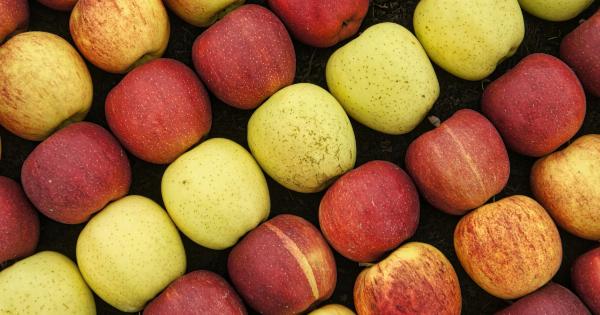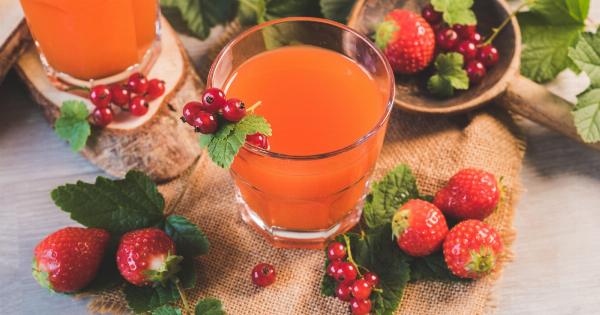Constipation is a common problem that affects people of all ages. It occurs when there is difficulty in passing stools or when bowel movements occur less frequently than usual.
Several factors can contribute to constipation, including a lack of fiber and water intake, sedentary lifestyle, and certain medications. However, many people are unaware that certain foods can also contribute to constipation. In this article, we will discuss the top 10 constipating foods that you need to watch out for.
10. Chocolate
While chocolate is a favorite indulgence for many people, it can also contribute to constipation. Chocolate contains caffeine, which is a natural laxative. However, consuming too much caffeine can cause dehydration, which makes it harder to pass stools.
Additionally, chocolate is high in fat, which can slow down digestion and lead to constipation.
9. Fried foods
Fried foods, such as French fries, chicken nuggets, and onion rings, are high in fat. Consuming large amounts of fat can slow down digestion and lead to constipation. Additionally, the lack of fiber in fried foods can further contribute to constipation.
8. Alcohol
While a drink or two may help to relax you, excessive alcohol consumption can lead to constipation. Alcohol is a diuretic, which means that it can cause dehydration. Dehydration can make it harder to pass stools and contribute to constipation.
Additionally, alcohol can slow down digestion and lead to irregular bowel movements.
7. Red meat
Red meat, such as beef and pork, is high in protein and low in fiber. A lack of fiber can contribute to constipation by slowing down digestion and reducing the frequency of bowel movements.
Additionally, red meat contains fat, which can further contribute to constipation.
6. Dairy products
Dairy products, such as milk, cheese, and yogurt, can also contribute to constipation. Dairy products are high in fat, which can slow down digestion and lead to constipation.
Additionally, some people may be lactose intolerant, which means that their bodies cannot digest lactose, a type of sugar found in milk. This can lead to bloating, gas, and constipation.
5. Unripe bananas
While bananas are often touted as a natural remedy for constipation due to their high fiber content, unripe bananas have the opposite effect.
Unripe bananas are high in starch, which can be difficult for the body to digest and can contribute to constipation. Additionally, unripe bananas contain a type of starch called resistant starch, which bypasses digestion and ends up in the large intestine, where it can contribute to constipation.
4. Processed foods
Processed foods, such as chips, crackers, and cookies, are often high in fat, sugar, and salt. A diet high in processed foods can lead to constipation by slowing down digestion and reducing the frequency of bowel movements.
Additionally, processed foods are often low in fiber, which can further contribute to constipation.
3. White rice
White rice is a staple food in many countries but can also contribute to constipation. White rice is low in fiber and high in starch, which can be difficult for the body to digest.
Additionally, white rice is often eaten with other constipating foods, such as meat and processed sauces, which can further contribute to constipation.
2. Eggs
Eggs are a good source of protein but can also contribute to constipation. Eggs are low in fiber and can slow down digestion.
Additionally, some people may be allergic to the proteins found in eggs, which can cause digestive problems, including constipation.
1. Bananas
While bananas are often recommended as a natural remedy for constipation, consuming too many bananas can have the opposite effect. Bananas are high in fiber, which is good for bowel health.
However, consuming large amounts of bananas can overload the digestive system and lead to constipation.
Conclusion
Constipation can be an uncomfortable and embarrassing problem, but it is often preventable. By avoiding or limiting these 10 constipating foods, you can improve your bowel health and reduce the risk of constipation.
Additionally, it is important to drink plenty of water, exercise regularly, and consume a diet rich in fiber to promote healthy bowel movements.




























